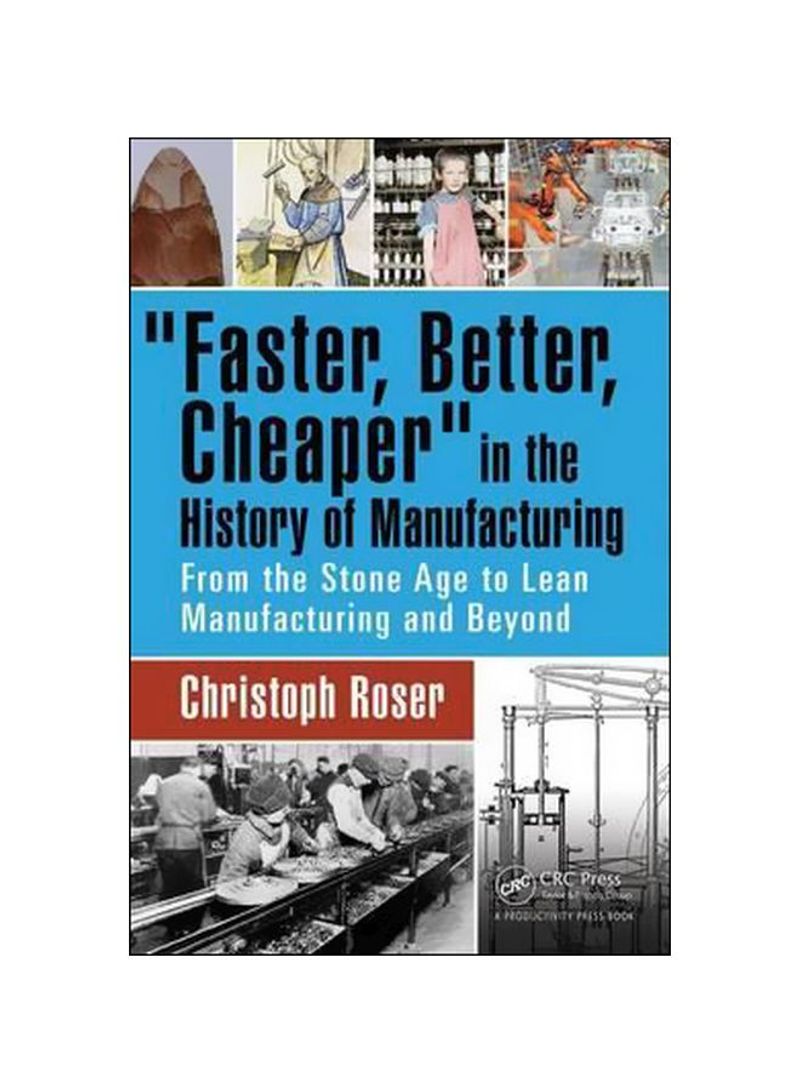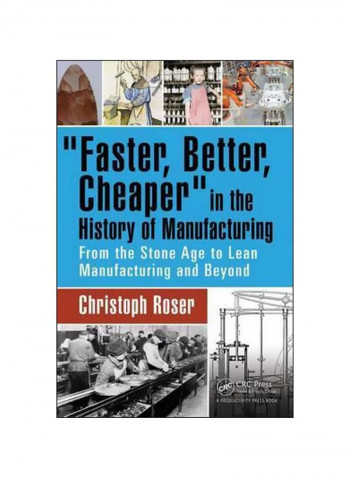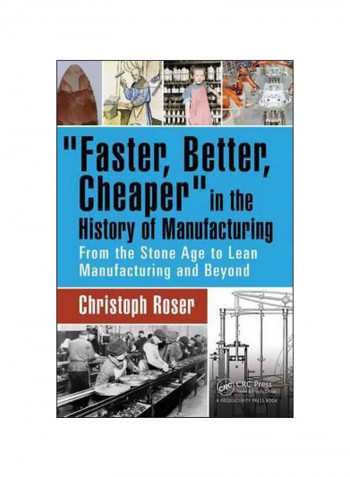Faster, Better, Cheaper In The History Of Manufacturing: From The Stone Age To Lean Manufacturing And Beyond Paperback From The Stone Age To Lean Manufacturing And Beyond
Recommend
Sort by
Rating
Date
Specifications
Grade
New
Author 1
Christoph Roser
Book Description
The industrial revolution, mechanization, water and steam power, computers, and automation have given an enormous boost to manufacturing productivity. "Faster, Better, Cheaper" in the History of Manufacturing shows how the ability to make products faster, better, and cheaper has evolved from the stone age to modern times. It explains how different developments over time have raised efficiency and allowed the production of more and better products with less effort and materials, and hence faster, better, and cheaper. In addition, it describes the stories of inventors, entrepreneurs, and industrialists and looks at the intersection between technology, society, machines, materials, management, and - most of all - humans.
ISBN-10
1498756301
ISBN-13
9781498756303
Language
English
Publisher
Taylor And Francis Inc
Publication Date
24 Aug 2016
Number of Pages
417
Edition Number
From The Stone Age To Lean Manufacturing And Beyond
Editorial Review
Brilliant insights regarding concepts of manufacturing systems for both practitioners and academics. - Dr. Masaru Nakano, Professor at Keio University, former manager of Toyota Central R&D Laboratories, Inc. "What an incredible abundance of facts and information comprehensively gathered and uniquely assembled. Its thorough production presents the fastest, best and cheapest way to make each reader more knowledgeable." - Dr. Stefan Bleiweis, Professor of International Management "This is sure to become a classic in the university curriculum to introduce students to the long history of how people improved society by making things. Roser links the progression of tools and processes from the Stone Age to emerging society to division of labor far earlier than most other scholars. He illustrates the regular progression of technology to improve productivity and closes with the future of work. Thought provoking and a necessary addition to the library of those in industry today." - Mark Warren, manufacturing engineer and amateur historian



